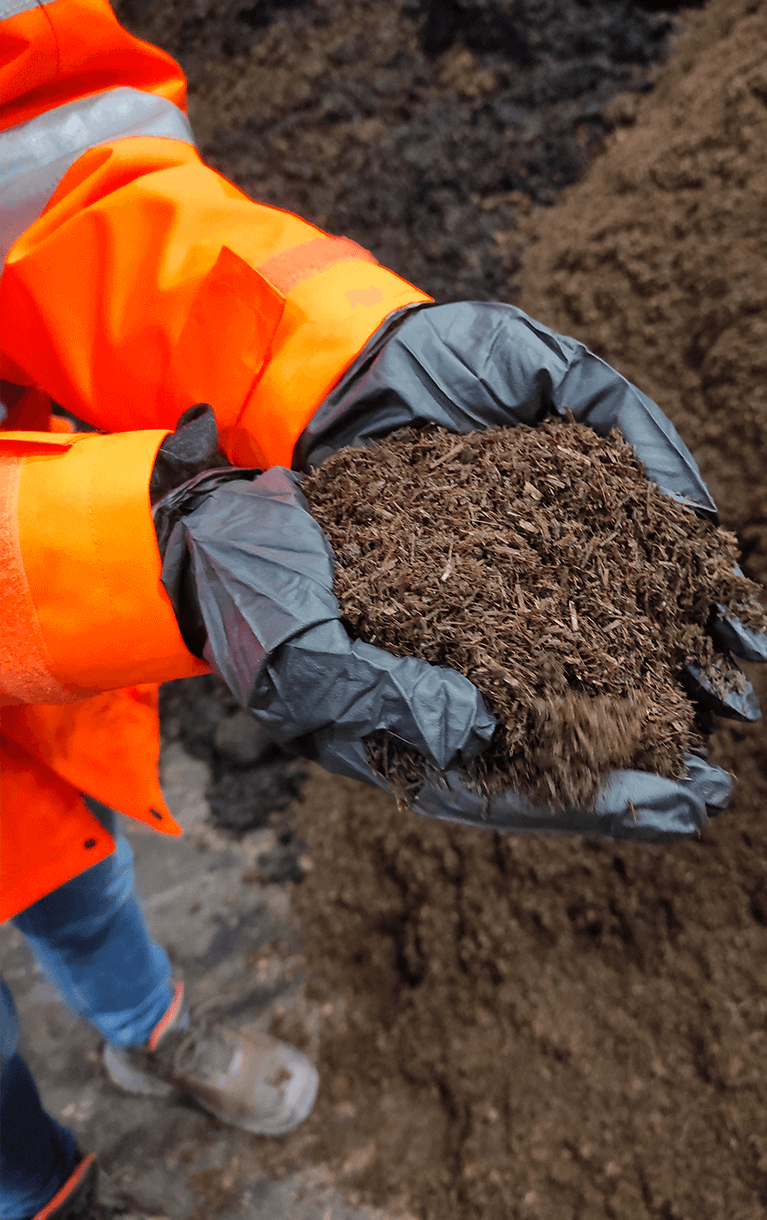Digestate production

A natural and local
fertiliser
Substitutable for chemical fertilisers
Digestate is the residue generated following the anaerobic digestion of organic waste. It is obtained locally and naturally, unlike artificial fertilisers.
Once deodorised, it improves application conditions compared with raw effluents. It is applied onto the fields of local farms based on a land application plan that complies with applicable regulations.
There are two types of digestate- Essentially contains nitrogen in ammoniacal form (NH4) which is directly available to the plant
- Main advantage: the plant immediately assimilates nitrogen, unlike manure which must be mineralised before it can yield nitrogen
- Can therefore be used as fertiliser to replace mineral nitrogen fertilisers.
- Used as organic amendment, basal fertiliser, i.e. to maintain the life of the soil, restructure humus, thereby enriching the soil with organic matter

Proof by example
Testimonial from Thierry GROLLEAU, digestate user Farmer Thierry Grolleau, a member of the Chavigny GAEC (farming association), has supplied manure and used digestate since the site was commissioned. He has a herd of 70 dairy cows and 30 heifers for herd renewal, as well as 260 ha of agricultural land. The farmer has also been a member of the Sol vivant association since 2016. He shares his experience with us.Digestate provides me with organic matter even in plots located miles away from my main farm, when transporting manure to these plots used to be challenging. I use a smaller amount of digestate per hectare than with manure, so I can apply it to more plots. The use of digestate goes well with conservation tillage practices (soil conservation, reduced inputs), thus making it possible to reduce the import of mineral nitrogen. Digestate promotes the development of intercropping, and intercropping helps improve soil structure through roots. Residual organic matter is subsequently returned to the next crop. I prefer to use digestate rather than mineral fertiliser as digestate provides soil with organic matter, which improves soil life. From a technical standpoint, solid digestate requires far less application equipment than manure, and the land application of liquid digestate helps me save time. At the end of the day, since anaerobic digestion, I no longer keep manure at the farm, which has also helped reduce associated nuisances, in particular the presence of flies. I am happy with digestate and I could never go back.

